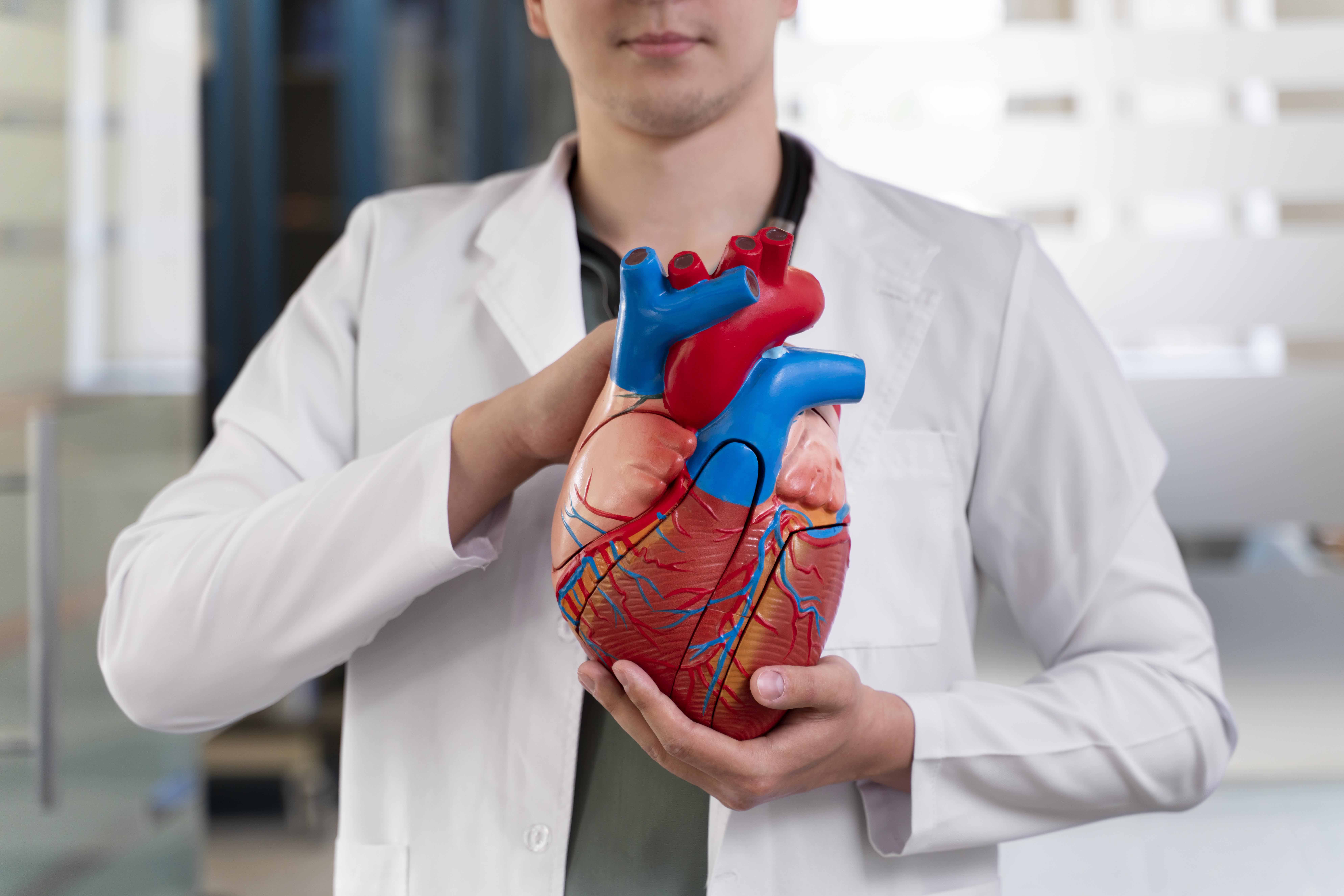Best suited for multivessel/left-main or diffuse CAD not ideal for stenting. Options include on-pump, off-pump (beating-heart), and minimally invasive/robotic CABG. India combines high-quality cardiac surgery, robust ICUs, and ~₹2.0–5.5 lakh (≈USD 2.4k–6.6k) packages. MediHeal handles opinions, quotes, visas, travel, and follow-ups.
Treatment Guide
Coronary Artery Bypass Grafting (CABG)
CABG can relieve angina, lower heart-attack risk, and improve survival for people with significant coronary blockages. India offers experienced cardiothoracic teams, modern ICUs, and substantial cost savings with shorter waits—coordinated end-to-end by MediHeal International.


Quick Answer
Who Needs Coronary Artery Bypass Grafting (CABG)
- Multivessel coronary artery disease, left-main disease, or diffuse lesions not amenable to PCI/stents.
- Persistent angina or objective ischemia despite medications and/or prior stenting.
Why Choose India
- Experienced cardiothoracic teams, protocol-driven ICUs, and advanced techniques (off-pump and minimally invasive CABG).
- Shorter waiting times with transparent package pricing and dedicated international patient desks.
- International-grade infection control and safety pathways at accredited centers.
How MediHeal International Helps
- Cardiac center & surgeon matching (conventional, off-pump, minimally invasive/robotic).
- Remote second opinions, itemized estimates, inclusions/exclusions clarity.
- Full logistics: medical visas, airport pickup, accommodation, interpreters, documentation & tele-follow-ups.
Types of CABG (Heart Bypass)
- Conventional On-Pump CABG— Heart-lung machine; precise grafting on a still heart.
- Off-Pump (Beating-Heart) CABG— Avoids pump; may reduce certain complications in select patients.
- Minimally Invasive / Robotic CABG— Smaller incisions; potential for faster recovery when suitable.
The Surgical Journey
Pre-arrival
- Share coronary angiography, ECHO, ECG, labs, and medication list.
- Receive a written plan: approach (on/off-pump/MICS), expected ICU duration, and itemized costs.
Arrival & Pre-op
- Updated ECG/ECHO, chest X-ray, anaesthesia and surgical clearance.
- Final consent, pre-hab breathing exercises, and fasting instructions.
In-hospital
- ICU stay post-op followed by step-down ward.
- Round-the-clock nursing, cardiac monitoring, physio, spirometry, wound-care education.
Recovery Timeline
Hospital stay
Typically 5–7 days, depending on intra-op findings and comorbidities.
Weeks 2–4
Light walking, breathing exercises, gradual increase in activity with guidance.
Weeks 4–6
Many resume light daily activities; driving/work depends on recovery and advice.
Beyond 6 weeks
Supervised cardiac rehabilitation improves stamina and reduces future events.
Benefits to Expect
- Angina relief, improved blood supply to the heart muscle, and better exercise tolerance.
- Lower risk of myocardial infarction and improved long-term survival when risk factors are controlled.
- For medical tourists: coordinated care, shorter waits, and cost advantages at accredited centers.
Risks & Complications
General Risks
- Wound infection (sternal/leg), bleeding or transfusion, arrhythmias (e.g., atrial fibrillation).
- Kidney effects, stroke (rare), lung issues, anaesthesia reactions.
- Temporary memory or concentration changes that usually improve over time.
Revision Risk
- Choose accredited centers with robust ICUs, infection control, and 24/7 cardiology coverage—especially important for international travelers.
- Strict adherence to rehab, medications (antiplatelets, statins, BP/sugar control), and follow-ups reduces future events.
Cost & Inclusions
Indicative Range: ≈ USD 2,400–6,600 (indicative; centre/case dependent)
- Typical inclusions: surgeon & hospital fees, OT & ICU charges, standard diagnostics, anaesthesia, and inpatient stay.
- Add-ons: premium implants/consumables, extended ICU/LOS, complications, and post-discharge rehab.
- Final quote varies by city, hospital tier/accreditation, surgeon, technique (off-pump/robotic), and complexity.
* Final quote after clinical evaluation; varies by implant, technique (e.g., robotics), hospital accreditation, city, and length of stay.
Travel & Visa Essentials
- Medical visa pathway covers major surgeries like CABG; prepare passport, photos, diagnosis, treatment plan, and hospital invitation.
- Visas may allow multiple entries and attendant visas (often up to two).
- Plan ~2–3 weeks in-country for pre-op, surgery, and early recovery; obtain fit-to-fly clearance before return.
Preparing for Surgery
- Bring complete records: angiography films/report, ECHO, ECG, labs; list all medicines and allergies.
- Control blood pressure, blood sugar, lipids; stop smoking; follow pre-hab breathing and walking plan.
- Arrange nearby lodging for a companion; plan for step-down support and wound-care supplies.
Rehabilitation Focus
- Enroll in cardiac rehabilitation for supervised exercise, risk-factor control, diet, and psychosocial support.
- Adhere to medications (antiplatelets, statins, beta-blockers/ACEi as prescribed) and follow-up schedules.
- Gradual return to work/driving/sexual activity as cleared by your cardiac team.
Frequently Asked Questions
How long is CABG recovery?
Many resume light activity in 4–6 weeks, guided by cardiac rehab and surgeon advice.
How many days in hospital?
Typically 5–7 days, depending on individual recovery and comorbidities.
Is off-pump CABG safer?
It may reduce certain complications in select patients; the best approach depends on anatomy and surgeon expertise.
What’s included in packages?
Usually surgery, ICU, anaesthesia, standard tests, and inpatient stay. Request itemized inclusions and exclusions.
Do I need a medical visa?
Yes—have hospital invitation letters and medical records; attendant visas are available for up to two companions.